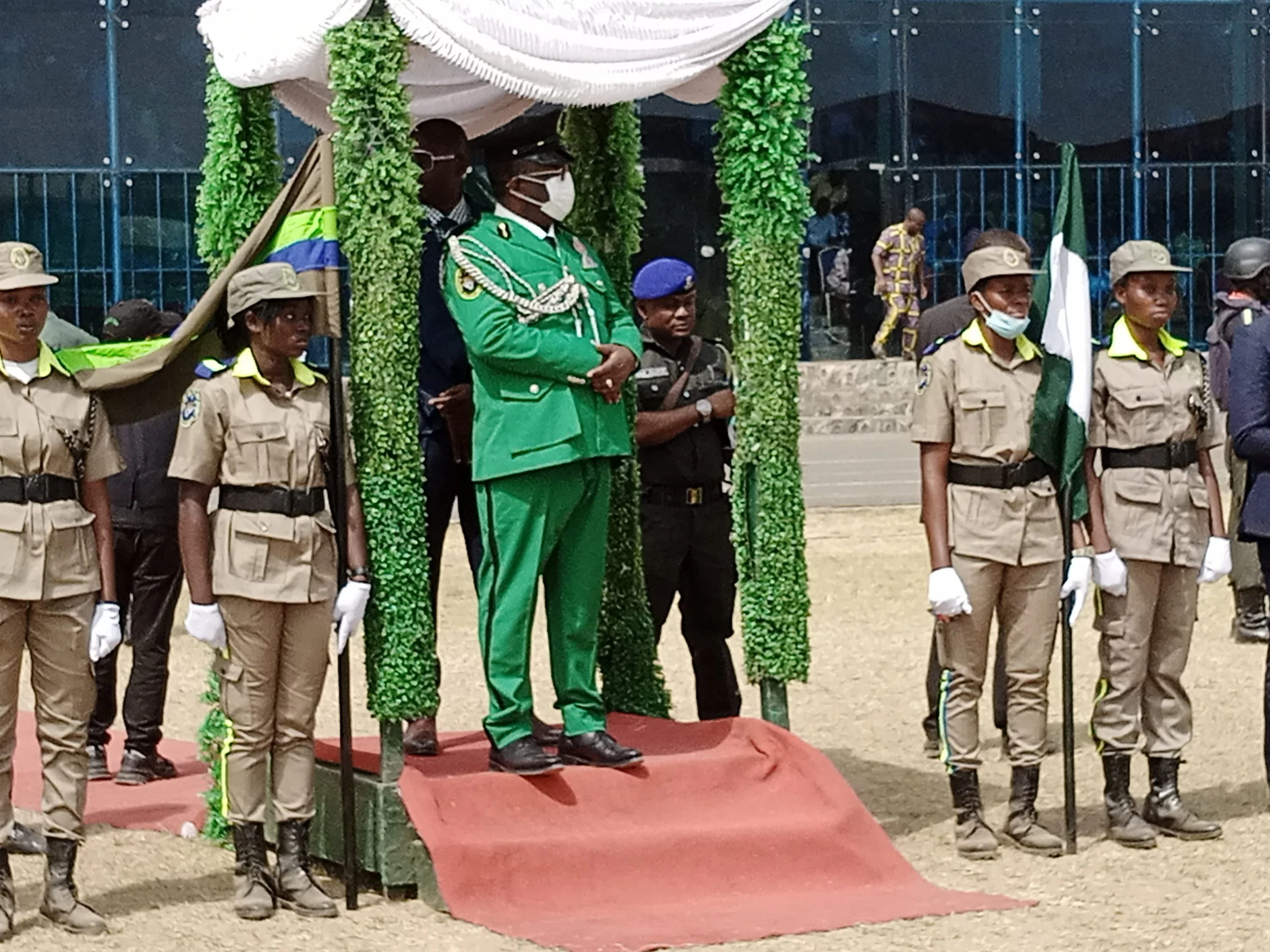In 2013, a ragtag bunch of residents in the capital city of Maiduguri, Borno State, came together to form a security collective. The Civilian Joint Task Force, as it later came to be known, emerged as a community-led response to the Boko Haram insurgency that was destroying Nigeria’s northeast.
The group proved effective on two notable fronts: supplying the Nigerian military with intelligence on the terrorists and providing security to internally displaced persons (IDP) sheltered in camps.
Years earlier, during the wave of violent crimes that rocked the country in the late 1990s, the Bakassi Boys took off as a brutal response, formed by a bunch of frustrated merchants in Aba, Abia State.
The group soon won widespread public support for rooting out armed robberies in the industrial town, spreading to neighbouring states like Imo and Anambra. Mostly wielding guns and machetes along with charms, the group became notorious for its scorched-earth approach.
A suspect was considered guilty, for instance, if a silver-coloured machete placed on their chest turned blood-red. Once identified, suspected criminals were immediately hacked to death, decapitated and set alight.
As the extrajudicial killings piled on, including the grisly murder of an alleged prophet and occultist, public support evaporated. Facing mounting pressure, states were forced to curtail the group’s activities, leading to its decline.
As armed violence has broadened in scope over the years, the country has continued to turn to community-driven security models.
One notable example is found in the southwest. Amid mounting tensions between farmers and herders in the region, the governors of the six states—comprising Oyo, Ekiti, Osun, Ondo and Ogun—proposed a regional security network in January 2020.
Like the CJTF, the Western Security Network, colloquially called Amotekun, complements the security efforts of federal agencies. In addition to intelligence-gathering, the initiative fights kidnapping and armed robbery in the region, although it must hand over suspects to the police.
The advent of the Amotekun was followed by knockoffs in the southeast flank. The Eastern Security Network launched in December 2020 as a paramilitary arm of the secessionist group Independent People of Biafra (IPOB), which had been declared a terrorist organisation in 2017. Because of its affiliation with the IPOB, the ESN was met with deep scepticism. Locals faulted its unstructured approach.
In response, the southeastern governors launched Ebubeagu as a legitimate alternative to the ESN. Akin to Amotekun, Ebubeagu was tasked with coordinating local vigilante activities and neutralising persistent attacks on hapless victims by unknown gunmen.
Compared with earlier vigilante groups like the Bakassi Boys, today’s outfits adopt less draconian methods. But they have not evaded controversy. Allegations of human rights abuses are rife. Ebubeagu, for example, has been linked to extrajudicial killings in states like Ebonyi and Imo, where it is perceived to be used to suppress dissent and weaken opposition.
Grassroots security outfits draw their inspiration largely from the perceived failure of federal security agencies, especially in rural and far-flung communities.
Mostly comprising community natives who have deeper understanding about the culture, language and terrain, these outfits tend to earn community trust and deliver more immediate results than the formal security agencies.
However, these groups confront several challenges. Funding, in particular, is a major constraint. But more critically, they operate in legal grey areas. With unclear mandates and ambiguous frameworks, tensions frequently erupt between state-backed vigilante groups and federal security agencies, raising questions about oversight, accountability and sustainability.
In 2013, amid the threat posed by the Boko Haram insurgency in northeastern Nigeria, the Civilian Joint Task Force (CJTF) was formed by residents of Maiduguri, Borno State, to provide intelligence and security support. Earlier, in the late 1990s, the Bakassi Boys emerged in response to violent crime in Abia State, gaining a notorious reputation for extrajudicial killings before public support dwindled.
Recently, community-driven security models have proliferated as a response to armed violence. In 2020, southwestern Nigerian states established the Western Security Network, known as Amotekun, to fight crimes like kidnapping and armed robbery while complementing federal security efforts. Similarly, the southeastern governors launched Ebubeagu in response to scepticism over the Eastern Security Network (ESN), linked to the secessionist group IPOB. While these modern vigilante groups claim less drastic methods than predecessors like the Bakassi Boys, they are not free from human rights abuse allegations.
These grassroots security initiatives arise from dissatisfaction with federal security agencies, offering culturally-attuned and quicker responses. However, they face challenges such as funding, legal ambiguities, and accountability issues, leading to tensions with federal forces over their effectiveness and governance.






